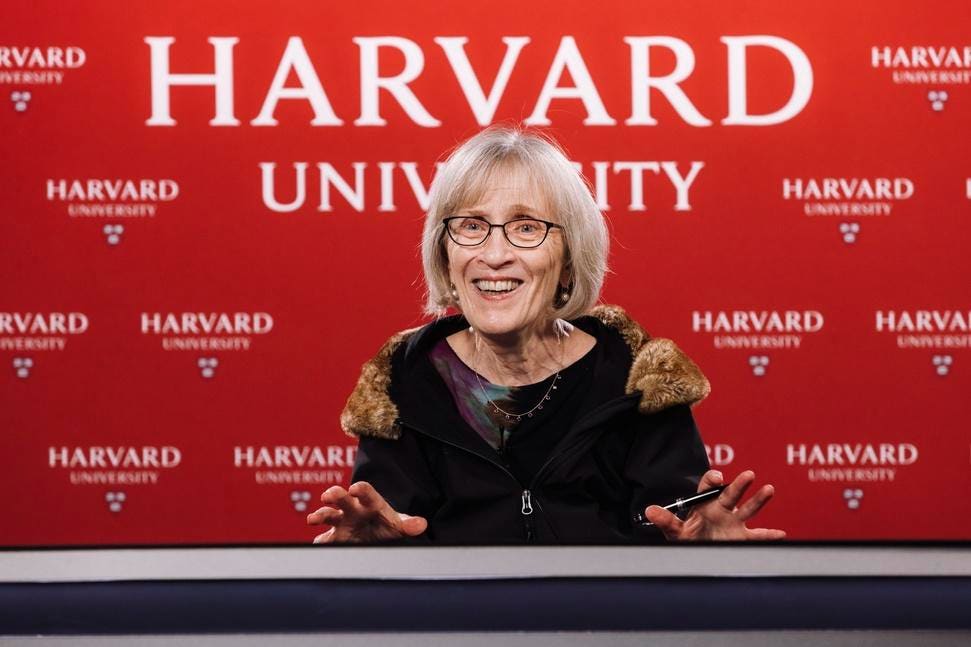This week, The Royal Swedish Academy of Sciences awarded Professor Claudia Goldin the Nobel Prize in Economics “for having advanced our understanding of women’s labour market outcomes,” making her the first solo woman to win the Nobel Prize in Economics.
The recognition represents decades of research and contributions, during which Professor Goldin broke down numerous barriers in the field of economics. She was the first woman to receive tenure in Harvard’s Economics Department in 1989, studied women in the workforce at a time when it received little to no support, devised novel research techniques combining cohort analyses and historical evidence, and was also the president of the American Economic Association and president of the Economic History Association. The list of accolades goes on.
However, while many articles on the subject of her historic Nobel win have noted her research contributions, they did not do justice to her true love of teaching, which makes her one of the most exceptional academics alive today. Not only has her own research opened up pathways for better understanding of our society, her personal example and mentorship have inspired generations of academics and industry leaders and led to long-lasting change in the field of economics.
I reconnected with my former professor (who insisted that I call her Claudia) on the phone after her historic win, during which she exemplified the humility and dedication to teaching that have made her such a beloved icon: she directed the conversation away from herself and towards the topic of gender equity and told me that she would have to go soon because she was on her way to meet with a student for a CV review.
For anyone who has had the pleasure of knowing her, this is par for the course. Professor Goldin not only researches the history of women labor force participation, but works actively to champion exactly the types of public and private actions that would lead to a more equitable society.
“I have known Claudia now for two decades, and she has been incredibly supportive of every aspect of my career, from the time I met her as an undergraduate through the present. I have young children and when I needed to attend to an illness, care for a newborn, or deal with a pandemic that disrupted my childcare for years, she is always extremely supportive, even when it meant extra work for her,” said Melissa Dell, Professor of Economics at Harvard University, John Bates Clark Medalist, and mother to three young children.
This is precisely the progress that brings Professor Goldin joy: “What I see around me are junior faculty members who have kids. That was unheard of,” she told me, when asked to compare economics departments today to when she graduated with her PhD in the 1970s.
Even two decades after Professor Goldin had graduated from the University of Chicago, things were not easy for women in academia. “When I started in economics in the 1990s, the expectation was that having children meant paying a steep price in terms of career,” said Susan Athey, Professor at Stanford Graduate School of Business, John Bates Clark Medalist, and current president of the American Economic Association. “Claudia has been a role model for generations of economists… The women who came before us paved the way for my generation to make progress on the things we needed to balance both. We owe those pioneering women so much gratitude. Each generation of women has faced different challenges and has carried the ball forward for those who follow. I have enormous admiration for how Claudia maintained her focus on critical economic questions about women’s labor supply even when it wasn’t popular to work on them.”
Her mentorship to economists goes beyond just her students; it often extends to their families as well. “Couple inequity gives rise to gender inequality. The goal is to have more couple equity and that’s very difficult in the labor market that we have,” said Professor Goldin.
Her former student Peter Ganong, Associate Professor of Public Policy, University of Chicago Harris School, praised Goldin for her cutting-edge research, mentorship, and pioneering of synthetic cohorts, a research methodology using generational cohorts to study shifts in people, incentives, and behaviors. Beyond that, he praised her for her personal values, “On a personal level, she has been incredibly supportive of both my career and my wife’s career, encouraging us to find ways to make both careers successful.”
Goldin told me that we as a society need to take care of each other, to “see a sense that your children are my children and there are overlapping generations, and the older generation pays back,” though notes that it is difficult in the current American structure. Her research is notable for the ways in which it does not try to be heavy-handed in policy prescriptions; rather, she notes the data and draws from a myriad of sources, to come to conclusions in a definitive way.
She is a fervent believer in diversity, that great minds can come from anywhere, but rather than talk about it in that way, she demonstrates through her research and her actions. Professor Dell praised the inclusiveness of Professor Goldin: “It signals to students that everyone belongs and brings something valuable from their own family background, not in a lip service to diversity but by truly taking an interest in where they come from and what distinguishes it.” She also noted, “My colleagues often comment that we feel like there are far more women in the department simply because Claudia makes so many public goods contributions on different fronts – while at the same time producing an unparalleled body of research.”
Former student Julia Pollak, Chief Economist of ZipRecruiter, thanked Professor Goldin both for her research and her personal impact: “Her careful, methodical, well-documented work of different cohorts of women and how norms have changed over time. She charts a path forward of how things have changed.” On the personal front, Pollak noted that when she was at Harvard, she felt like a fish out of water because she was a foreigner and had a very different background from many classmates. But Professor Goldin made her feel “so valued in her class, so supported and encouraged.”
Lilly Deng, Director at Meta, echoed that sentiment: “Claudia Goldin is the only person who made me feel smart enough to be at Harvard… I’m forever grateful to her kindness and generosity to always make time and care for her students.”
Professor Goldin, in her press conference at Harvard University following the announcement of her Nobel, gave credit to her students: “I am a teacher, I am a professor. I could never do research without doing teaching. When I teach, I am forced to confront what I think is the truth… I deeply thank my students who push me to the frontiers of knowledge every day.”
When I specifically noted that I’d spoken to multiple former students about what an inspiration she has been, she simply said, “Well, that’s very kind,” then directed the conversation away from herself again by reminding me to “have a seat at the table.” She then ended the call by asking me to keep in touch and to send a picture of my family.
Congratulations, Professor Claudia Goldin. The Nobel Prize in Economics this year could not have gone to a better academic and human being.
Read the full article here













Leave a Reply